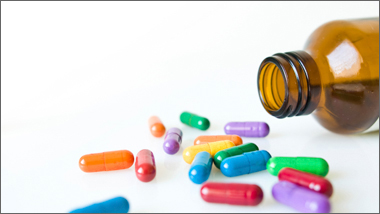 Many drugs could cause adverse unwanted effects, and particular medicines can trigger allergies. In an allergic attack, the disease fighting capability mistakenly responds to a medication by producing an immune reaction against it. The disease fighting capability recognizes the medication as a foreign material and your body produces certain chemicals, such as huge amounts of histamine, so that they can expel the medication from the body.
Many drugs could cause adverse unwanted effects, and particular medicines can trigger allergies. In an allergic attack, the disease fighting capability mistakenly responds to a medication by producing an immune reaction against it. The disease fighting capability recognizes the medication as a foreign material and your body produces certain chemicals, such as huge amounts of histamine, so that they can expel the medication from the body.What Are the Outward indications of a Drug Allergy?
Symptoms of a medication allergy can range between mild to life-threatening. Even yet in individuals who aren't allergic, many drugs could cause intolerance and irritation, such as for example an upset belly. But during an allergic attack, the launch of histamine could cause signs and symptoms like hives, pores and skin rash, itchy eyes or skin, congestion, and swelling in the throat and mouth area.
A far more severe reaction, known as anaphylaxis, may include problems breathing, blueness of your skin, dizziness, fainting, anxiety, misunderstandings, rapid pulse, nausea, diarrhea, and abdominal problems.
What Are the most typical Drug Allergies?
Historically, penicillin along with other similar antibiotics will be the drugs many people are allergic to.
Other medicines commonly found to trigger allergies include sulfa drugs, barbiturates, anticonvulsants, and insulin.
How Are Drug Allergy symptoms Diagnosed?
A doctor diagnoses drug allergies by carefully reviewing your health background and symptoms. If your physician suspects that you will be allergic to an antibiotic, such as for example penicillin, she or he might do a skin test to verify it. However, skin testing can not work for all drugs, and in some full cases it may be dangerous. If you have experienced a severe, life-threatening a reaction to a specific drug, your doctor only will eliminate that drug as cure option for you. Conducting an allergy check to determine if the original reaction was a "correct" allergic response isn't well worth the chance, especially if you can find other drug options.
How Are Drug Allergy symptoms Treated?
The principal goal when treating an allergic drug reaction is symptom alleviation. Symptoms such as for example rash, hives, and itching can be controlled with antihistamines, and occasionally corticosteroids.
For coughing and lung congestion, drugs called bronchodilators could be prescribed to widen the airways. For much more serious anaphylactic signs and symptoms - life-threatening allergies including problems breathing or lack of consciousness - epinephrine could be given.
How Are Drug Allergy symptoms Treated?
Occasionally, desensitization can be used to take care of a penicillin allergy or other drug allergy. This system decreases your sensitivity to specific allergy-causing agents. Tiny levels of penicillin are usually injected periodically in progressively larger quantities until your disease fighting capability learns to tolerate the medication. There is a risky of anaphylaxis connected with this procedure, so desensitization is only reserved for patients without other drug therapeutic choices typically.
In case you are allergic to certain antibiotics severely, there must be alternative antibiotics your physician can prescribe.





